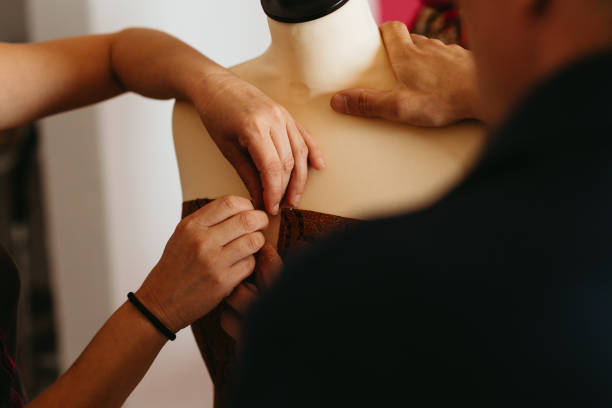Affordable Screwless Dental Implants: Discover Innovative Solutions for Your Needs!
If you’ve been considering dental implants but the high costs have held you back, there’s encouraging news: screwless dental implants offer a more affordable, innovative alternative. These advanced implants provide a comfortable, quicker solution, making modern dental restoration more accessible than ever. Explore nearby clinics that offer screwless dental implants and discover personalized treatment options today.

What Are Screwless Dental Implants?
Screwless dental implants, also known as press-fit or friction-fit implants, are a modern alternative to traditional screw-based implants. These innovative devices are designed to be inserted into the jawbone without the need for screws or threading. Instead, they rely on a precise fit and surface technology to integrate with the surrounding bone tissue. This design allows for a less invasive procedure and potentially faster healing times compared to conventional implants.
Why Are Screwless Implants Becoming a Popular Choice?
The growing popularity of screwless dental implants can be attributed to several factors. Firstly, the simplified installation process often results in reduced surgery time and less trauma to the surrounding tissues. This can lead to a more comfortable experience for patients and potentially faster recovery periods. Additionally, the absence of screws eliminates the risk of screw-related complications, such as loosening or fracture over time.
Another significant advantage is the potential for immediate loading in some cases. This means that temporary crowns can sometimes be placed on the implants immediately after surgery, allowing patients to leave the dental office with a functional and aesthetic smile. This immediate functionality is particularly appealing to those who want to minimize the time spent without teeth.
How Do Screwless Implants Work?
Screwless implants work through a combination of precise engineering and biological processes. The implant is typically made of titanium or a titanium alloy and features a specially designed surface that promotes osseointegration – the process by which bone cells grow and attach directly to the implant surface. The implant is carefully inserted into a prepared socket in the jawbone, where its shape and surface characteristics create a strong initial stability.
Over time, the bone tissue grows around and into the microscopic pores on the implant surface, creating a robust and long-lasting bond. This integration process, which typically takes several weeks to months, ensures that the implant becomes a stable foundation for the prosthetic tooth or crown that will be attached to it.
Dental Implants for Elderly Patients: Considerations & Success Rates
Dental implants, including screwless options, can be an excellent solution for elderly patients seeking to restore their smiles and improve their quality of life. However, there are several important considerations for this age group. Bone density and overall health play crucial roles in the success of dental implants. As we age, bone density naturally decreases, which can affect the stability of implants. However, modern techniques such as bone grafting can help overcome this challenge in many cases.
The success rates for dental implants in elderly patients are generally high, often comparable to those in younger adults when proper care and attention are given to individual health factors. Studies have shown success rates of over 90% for implants in patients over 60 years old. It’s important to note that factors such as overall health, smoking status, and oral hygiene practices can significantly influence these outcomes.
Unique Benefits for American Seniors
Screwless dental implants offer several unique benefits for American seniors. The potentially shorter surgery times and reduced invasiveness can be particularly advantageous for older patients who may have concerns about lengthy procedures or extended recovery periods. The possibility of immediate loading with some screwless implant systems can also be a significant benefit, allowing seniors to quickly regain confidence in their smiles and maintain their social activities without interruption.
Moreover, the long-term stability of screwless implants can provide peace of mind for seniors looking for a lasting solution to tooth loss. With proper care, these implants can last for many years, potentially for the rest of the patient’s life, eliminating the need for future dental work related to missing teeth.
Cost Considerations and Provider Comparison
When considering screwless dental implants, cost is often a significant factor, especially for seniors on fixed incomes. While generally more affordable than traditional implants, prices can vary based on location, provider, and individual case complexity.
| Provider | Average Cost Per Implant | Notable Features |
|---|---|---|
| ClearChoice Dental Implant Centers | $3,000 - $6,000 | National network, all-in-one centers |
| Affordable Dentures & Implants | $1,500 - $4,000 | Budget-friendly options, multiple locations |
| Aspen Dental | $2,000 - $5,500 | Widespread availability, financing options |
| Local Specialized Implant Centers | $2,500 - $7,000 | Personalized care, advanced technology |
Prices, rates, or cost estimates mentioned in this article are based on the latest available information but may change over time. Independent research is advised before making financial decisions.
It’s important to note that these costs typically include the implant, abutment, and crown. Many providers offer financing options or accept dental insurance, which can help make the treatment more accessible. Additionally, some dental schools or clinical trials may offer reduced-cost implant procedures, providing another avenue for affordability.
In conclusion, screwless dental implants represent an innovative and potentially more affordable option for those seeking to restore their smiles. With benefits like shorter surgery times, reduced invasiveness, and the possibility of immediate loading, they offer unique advantages, especially for elderly patients. As with any dental procedure, it’s crucial to consult with a qualified dental professional to determine the best treatment plan for your individual needs and circumstances.
This article is for informational purposes only and should not be considered medical advice. Please consult a qualified healthcare professional for personalized guidance and treatment.




